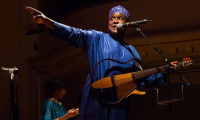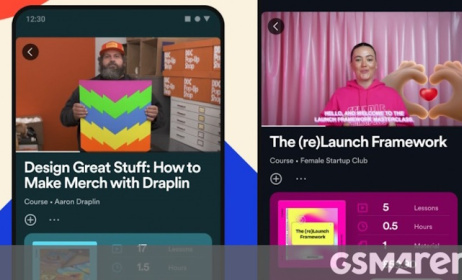UMG-TikTok saga spells trouble for African artists
When elephants go at it, it’s the grass that suffers. So goes the African proverb. Universal Music Group’s (UMG’s) fallout with TikTok has triggered industrywide panic, but the consequences for the conglomerate’s African artists could potentially be more devastating than for artists in more developed music markets.
 UMG’s boycott spells trouble for African artists like Stonebwoy (pictured).
UMG’s boycott spells trouble for African artists like Stonebwoy (pictured).
The world’s largest music rightsholder, UMG, is home to African stars like Stonebwoy from Ghana, Youssou N’Dour from Senegal, Mr Eazi and Yemi Alade from Nigeria, and Sauti Sol from Kenya, among many others. The ByteDance-owned TikTok, boasting more than 1 billion monthly active users, reaches over 23% of the world’s 5.3 billion internet users. The development, marking the end of a global licensing deal that began in 2021, will affect about 3 million recorded music tracks and roughly 4 million songs whose publishing rights UMG holds.
UMG accuses the Chinese-owned platform of, among other things, building a music-based business that lacks fair compensation for artists, and has expressed concerns that AI-generated recordings on TikTok could impact the royalty pool. This has led to a breakdown in negotiations between both parties.
“TikTok proposed paying our artists and songwriters at a rate that is a fraction of the rate that similarly situated major social platforms pay,” UMG says, presumably referring to the $0.03 artists reportedly receive for each new TikTok video that uses a song.
TikTok’s response: UMG is choosing the route of greed; otherwise, how has TikTok “been able to reach ‘artist-first’ agreements with every other label and publisher”?
TikTok’s ecosystem and utility extend far into the music space, as highlighted in its latest Music Impact Report. The document shows users’ propensity for discovering and sharing new music content on socials, surpassing the engagement levels of the average user on similar platforms.
In the US – where Republican legislators want to outlaw the video app on grounds of national security but don’t have public support to do so – TikTok has users exhibiting double the likelihood of discovering music compared to the average user of similar apps, a pattern that also applies to Africa, the continent with the youngest population. This has elevated TikTok to a primary marketing tool in this region, even driving the global popularity of genres like Afrobeats and amapiano.
The likes of Ghana’s Black Sherif, Nigeria’s CKay and Rema, and Tyla from South Africa have experienced international success, propelled by their music going viral on TikTok, thanks to an algorithm-driven exposure mechanism with the potential to turn obscure tracks into global sensations overnight.
In 2019, CKay’s ‘Love Nwantiti’ became a TikTok sensation, catapulting him to global fame and making him reach 1 billion streams on Spotify. Similarly, Rema’s ‘Calm Down’ found widespread success, largely credited to TikTok’s influence. Tyla’s ‘Water’, which went viral on TikTok and ignited a global dance craze last year, is responsible for her nomination at the upcoming Grammy Awards on 5 February.
If it persists, the UMG boycott poses a threat to the growth and exposure of African artists, potentially limiting revenue streams in a music royalty system that generally only functions effectively in the digital space. There’s also the looming disruption of a vital channel for music promotion and the shackling of future hits within TikTok’s unique ecosystem.
Gabriel Myers Hansen is West Africa Editor at Music In Africa



























Commentaires
s'identifier or register to post comments